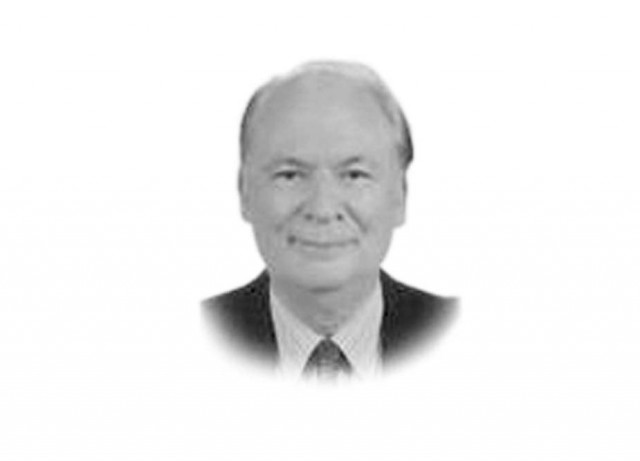D.F. Karaka and the Chinese resistance
Karaka’s diary is about a national government which was corrupt and communist soldiers of the north.

anwer.mooraj@tribune.com.pk
In my collection of Chinoiserie, I came across a personal narrative by the Indian journalist D.F. Karaka entitled Chungking Diary. It is about the struggle of the Chinese people against the Japanese invaders during the Second World War. In Bombay during the 1940s — and for many years after that — two Parsi trailblazers indulged in some trenchant investigative journalism. One was the left-leaning Rustom Khurshedji Karanjia, editor of Blitz, and the other, the rightist Dosabhai Framji Karaka, editor of Current, who had pronounced bourgeois tastes. Their barbs against each other increased the circulation of both journals. Karaka was a sharp critic of both Pandit Nehru and his daughter, Indira Gandhi, who imprisoned him briefly during the Emergency (1975-1977). When word got around that he finally wanted to retire, a clutch of Hindu publishers expressed an interest in the weekly. But Karaka chose Ayub Syed, a Muslim, as his successor.
Chungking Diary, published in 1942, is a remarkable book about the month Karaka spent in the war time capital of China, a country which the British foreign secretary Sir John Simon once described as “a mere geographical expression”. This was as contentious as the description of Russia made by Winston Churchill about it being “a riddle wrapped in a mystery inside an enigma”, especially after the Red Army won the war for the Allies. China has always exuded a special mystique, that inscrutability that Westerners are often predisposed to look for in the country. The art that emerged depicted birds flying over majestic waterfalls, mist obscured mountain peaks, mud and wattle cottages in riverside villages and a junk sailing into a harbour at eventide, its ribbed sails a glowing orange in the sunset. The waterfalls are still there, but they are now generating hydroelectric power. And in place of those mud and wattle cottages are tall apartment buildings and huge hotels that employ a small army of staff. The country has foreign exchange reserves of trillions of dollars and an enviable growth rate.

There is a delightful passage in the book where the author asked Chou en-Lai why everybody regarded Generalissimo Chiang kai-Shek as the hero of China. “Because he led the fight against Japan,” was the answer. Chiang kai Shek, who had destroyed the war lords in 1928, was a hero also in the eyes of the Communists, and in Karaka’s opinion, was a far greater man than Winston Churchill. Difference of opinion arose only when the reactionary Kuomintang element came into play. The most sacred words in China during the war were San Minh Chu I — the three principles of the people as enunciated by Sun Yat Sen in his legacy to the Chinese people — nationalism, democracy and livelihood. Nationalism meant the abolition of treaties which foreigners had imposed upon the Chinese and the doing away of ‘extra-territoriality’ derived from unequal treaties. Karaka’s diary is about a national government which was corrupt and the communist soldiers of the north who were paid the equivalent of six annas a month. “They eat and live on the land and what the people grow and give them. It is something more near soul force. Bergson might have called it elan vitale. How different it was in India. The begum of Somewhere-or-the-Other had given a party in Hyderabad, apparently for the war effort where the guests measured buffalo tails by starlight. That was India’s war effort, a story told in bridge and mahjong drives, in pretty uniforms and war charities. But then, India was fighting somebody else’s war.”
Published in The Express Tribune, January 5th, 2014.
Like Opinion & Editorial on Facebook, follow @ETOpEd on Twitter to receive all updates on all our daily pieces.














COMMENTS
Comments are moderated and generally will be posted if they are on-topic and not abusive.
For more information, please see our Comments FAQ